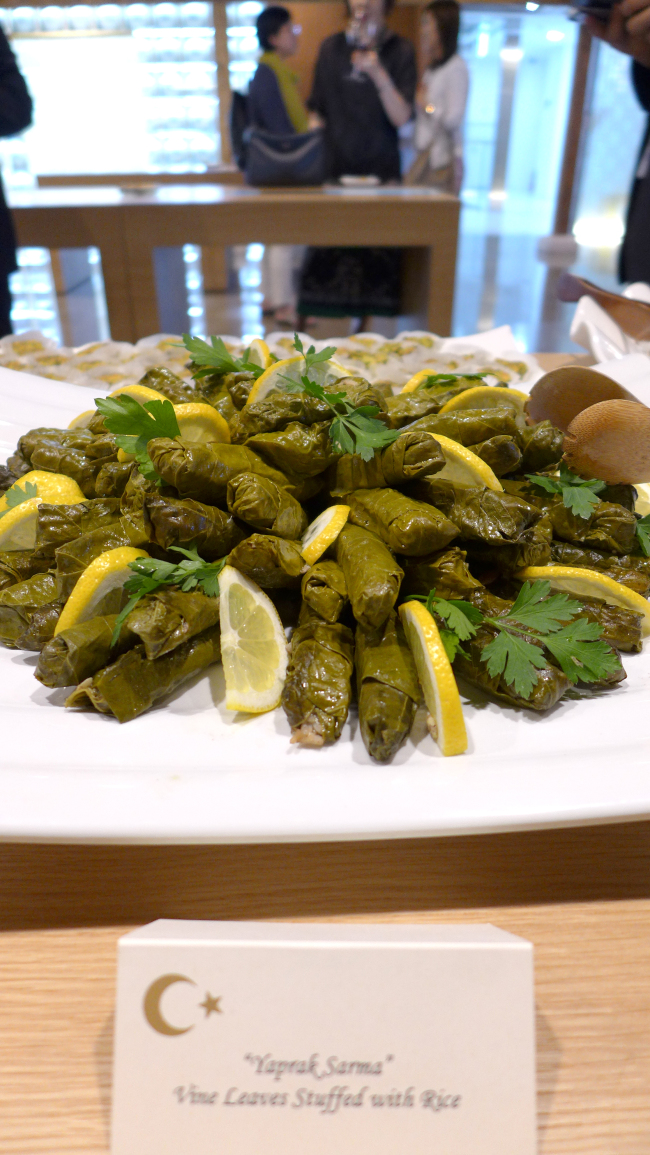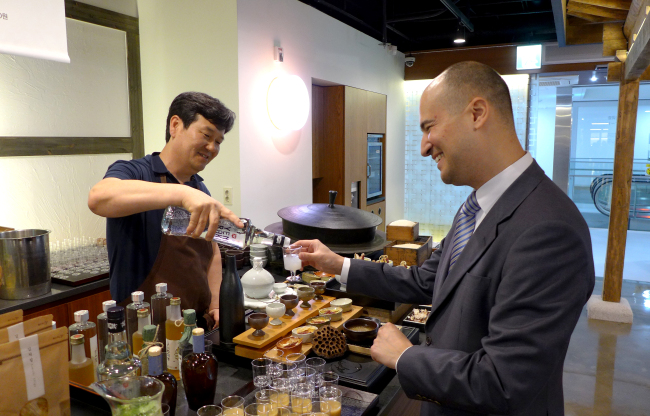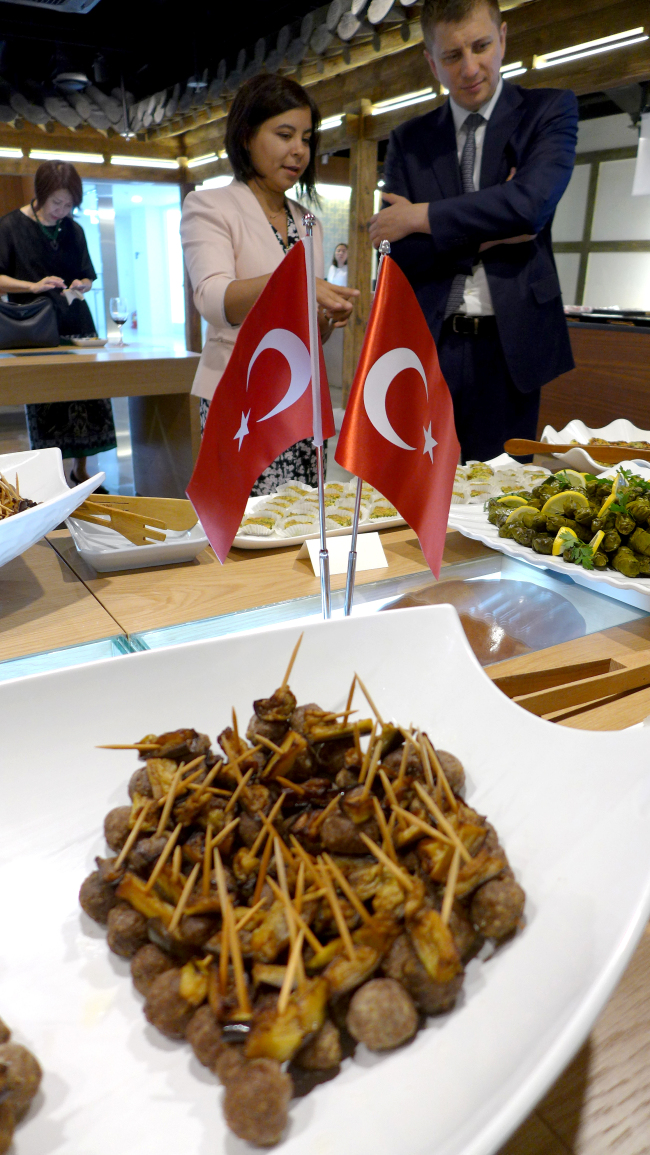The Turkish Embassy and the Korean Food Foundation jointly organized an exhibition last week, celebrating the gastronomic and wearable traditions of both countries.
At the opening ceremony in Seoul on Thursday, traditional Turkish foods, including meatballs wrapped in eggplant and bell peppers, “yaprak salma” (vine leaves stuffed with rice), “borek” (spinach rolls), as well as Turkish alcoholic beverage “yeni raki” were showcased.
Also on display were traditional embroideries by Korean designer Choi Duk-joo and those belonging to the Turkish ambassador’s spouse Pinar Okcal, as part of the exhibition “Bohca meets Bojagi.”
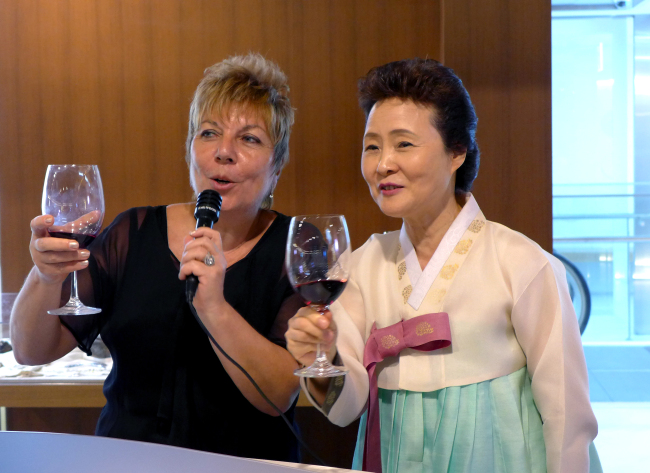 |
The Turkish ambassador’s spouse Pinar Okcal (left) poses with president of the Korean Food Foundation Yoon Suk-ja at the opening ceremony of the World Food Culture Exchange Program on Thursday. (Joel Lee / The Korea Herald) |
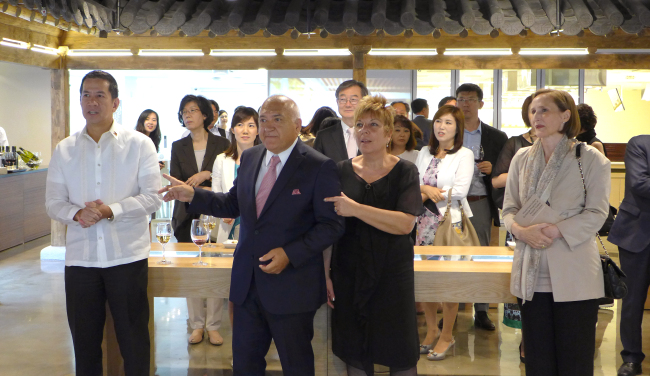 |
(From left, front) Philippine Ambassador Raul S. Hernandez, Turkish Ambassador Arslan Hakan Okcal and his wife Pinar Okcal and Austrian Ambassador Elisabeth Bertagnoli (Joel Lee / The Korea Herald) |
“Ever since my husband (Ambassador Okcal) and I came to Korea two and a half years ago, we have witnessed close resemblances between Turkish and Korean cultures,” Pinar told The Korea Herald.
“Our language belongs to the Ural-Altaic family, and our strong family values that respect the elders are the same. The words for wrapping cloths -- ‘bohca’ and ‘bojagi’ -- in Turkish and Korean, respectively, are also so similar, so I thought bohca should meet bojagi in an exhibition.”
As for other resemblances, Pinar pointed to dumplings “manti” (Turkey) and “mandu” (Korea), which are thought to have originated from Central Asia; and Korean barbecued kalbi and Turkish kebab.
Okcal displayed her collection of cloths made of silk, velvet and other fine materials that were handed down from her mother and grandmother.
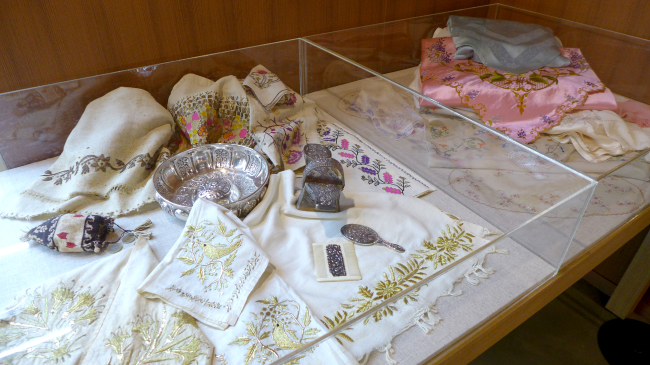 |
Displayed collection of cloths made of silk, velvet and other fine materials that were handed down from her mother and grandmother. (Joel Lee / The Korea Herald) |
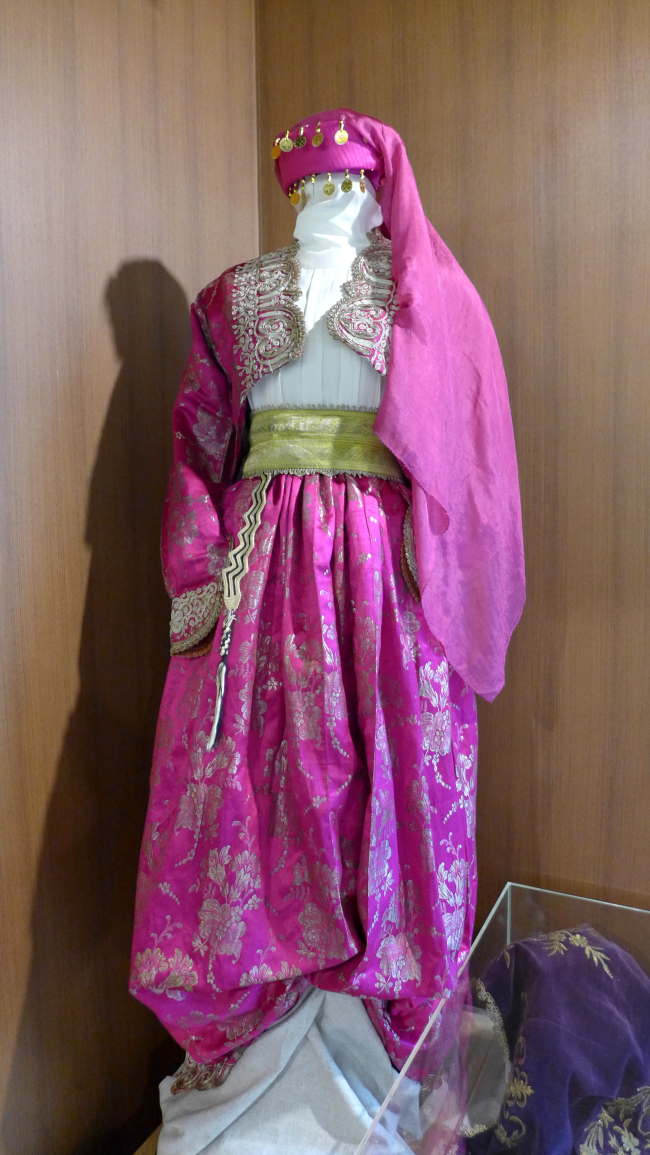 |
Displayed collection of cloths made of silk, velvet and other fine materials that were handed down from her mother and grandmother. (Joel Lee / The Korea Herald) |
Last fall, she taught an elective class on global networking and leadership at Sookmyung Women’s University in Seoul for a semester and was given an honorary professorship. She also gives regular lectures on the culture of Turkey.
“Turkey is at the crossroads of Europe and Asia, but our values are somewhat closer to the East,” she said. “Many Turks fought and died in the Korean War (1950-53) and when we told our friends in Turkey that we were coming here, everyone said they had a grandfather or an uncle who participated in the war.”
She added, “We have been so warmly welcomed since coming here. We are truly blood-sealed brother countries.”
By Joel Lee (
joel@heraldcorp.com)
